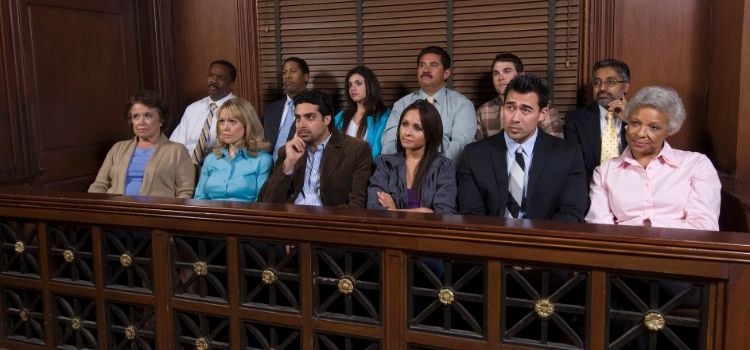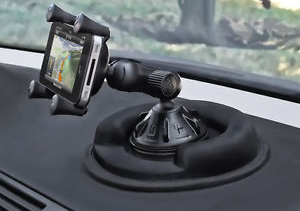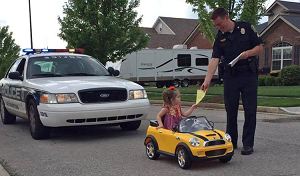What is a Sig Alert and How to Plan Travel Around It?
It has happened to every Southern California (SoCal) driver at one time or another. You wake up in the morning or get off from a long day at work. All you can think about is getting where you need to go. Perhaps you are even running a bit behind schedule.
Then, the worst possible thing occurs. There is a Sig Alert on the route you are taking! Too late now. You could be stuck for hours in some of the worst traffic in the nation.
Read on to find out how you can avoid this unfortunate fate by learning just what a Sig Alert is and how you can plan your route around one.
What is a Sig Alert?
Sig Alerts are traffic warnings that the authorities issue when they expect a major backup on the roads. They declare a Sig Alert situation when an incident causes two lanes or more to be unavailable for at least two hours.
Despite most SoCal freeways having multiple lanes, these debilitating Sig Alert incidents usually result in serious traffic jams. The first problem is the closed lanes. Vehicles must merge into other lanes, which stalls the flow of traffic. Second is rubbernecking. People always slow down to stare at an accident. The cumulative effect of just a few seconds of staring results in even further congestion.
History of the Sig Alert
The Sig Alert originated in the 1940s. Traffic was becoming worse as more Southern Californians began purchasing cars. Jobs in the burgeoning defense industry had put money into the pockets of many who before did not have disposable income.
Local police would notify Loyd Sigmon, a popular Los Angeles radio reporter, of bad accidents. He would then inform the public on his show. Eventually, the broadcasts became widely known as “Sig-Alerts.” The police then began sending the alerts via electronic devices to Sigmon and other journalists.
Today, the California Highway Patrol (CHP) issues these warnings to both the media and public via a vast array of communication networks.
How to Avoid Traffic Congestion
Always check for ongoing Sig Alerts before leaving your home or workplace. Furthermore, keep checking while on the road. Quite often, you can make a hasty detour before getting into the proximity of a Sig Alert zone.
Where to Get Information
You are very fortunate that in this age of fast communication, the authorities have many ways to broadcast Sig Alerts. In the past, motorists had to be listening to the Loyd Sigmon Show to know what was going on.
These days, to find out about alerts, you can watch the television news. All SoCal news shows have routine traffic reports during the morning and afternoon rush hours. These stations also have websites that update as road conditions change.
The California Highway Patrol posts Sig Alerts on its website as well. If you are driving, look for warnings on the electronic message boards above the highways.
Also, local radio stations still announce Sig Alerts to keep listening to audiences informed.
Last, but certainly not least, you can download a Sig Alert notification program for your mobile device.
Avoid an Accident
The only thing worse than being trapped on a highway in Sig Alert-related traffic is being the source of the alert itself.
You can lessen your chances of causing an accident by attending traffic school. Be sure that the course is recognized by the state. You may even be able to receive a dismissal of any outstanding traffic tickets.
How to Sell Your Car Online – eBay
Selling your car online can sometimes get a bad reputation, but there are ways to use it so you get the visibility and the price you want. The best part is that it can save you time, so selling your car doesn’t turn into a months-long headache. eBay is one of the most respectable (and safe) ways you can sell your car to a legitimate buyer. Listed below are some of the reasons why eBay is known as a front-runner in the Online Car Sales Arena.
A Little Expertise
Selling a car is going to be a lot of work no matter what, and likely not without its share of inconveniences. Those hassles are why people trade in their cars in the first place. But going through a dealer will likely only get you a fraction of what the car is worth, making it an easy but not a financially sound idea. eBay is not only trusted by buyers, but the fees are relatively inexpensive (or even free.) Basically, you’ll just need a few computer skills before you list, and you’ll be in business.
The Process
You’ll need to take lots of photos, and you’ll want to make sure your car cleans up well. Get it professionally detailed and don’t look back about the cost. Presentation matters more than ever today. You’ll need to register on eBay if you haven’t already, and then start gathering the information you’ll need. This not only includes the title and vehicle information (VIN, miles, etc.), but also the price your car normally sells for. Don’t just check KBB.com though, look for similar cars on eBay that have sold in your area. Some vehicles are more highly prized in certain cities (e.g., all-wheel drive in snowy states.) You can access that information when you look through past sales on eBay listings.
Create Your Listing
Once you have the information, you’ll want to place a price on your vehicle, and then set the terms of sale. There is no bidding for cars on eBay, regardless of how you sell it. Be specific about your vehicle, and don’t leave anything out. Misrepresenting your car could violate eBay’s rules of selling. For example, you may list your car at $1,000 with no negotiations and no returns, but you’ll need to detail the information you do and don’t know first. Once the sale process begins, be as active as possible on the listing. Answer questions, update the information, and potentially reconsider your pricing if you aren’t having any luck. It would also be wise to take traffic school a defensive driving course to dismiss tickets before you sell. Once you sell, you’ll need to work out the delivery and pick-up times with the buyer.
Focus on Local
You can sell nation-wide on eBay, but you’ll likely want to sell locally instead. Local listings are sold on their classified site, which works very much like Craigslist or your local newspaper. eBay will not take a cut of the sale prices, though you will be limiting the amount of people who see your ad (those within a 200-mile radius.) Listing nationally will not only cost you, but it makes it a lot more likely you’ll run into delivery and pick-up problems. If you do choose to sell nationally, you’ll pay $60 to eBay if your car sells for less than $2,000, and $125 for anything over $2,000. You will not have to pay the fee if the car isn’t sold, and will be able to relist it quickly for a different price should you so choose. The fees and the number of pictures you can upload are still more reasonable than many of the other online forms of sale.
How to get a speeding ticket off your driving record
Speeding tickets tend to happen when you least expect them, and when your funds seem to be at their lowest. But there’s a much bigger danger beyond just your rapidly shrinking bank account — points on your license. Tally up enough of those points, and you may find yourself not only broke but also on the bus. But there are ways that you can get a speeding ticket wiped entirely from your record completely.
What is the best way to fight a traffic ticket?

Every state in the nation has their own way of handling speeding tickets, with some being more lenient than others. There are certain things that stay the same across the US if you plan to fight the ticket. For all states, you’ll have a chance to tell your side of the story if you feel there was a mistake made when issuing the speeding ticket. For example, if you know you were going 55 miles an hour when the officer clocked you at 65, then his radar gun or detection device may have been poorly calibrated or just plain broken. Always plead not guilty in any court of law if you intend to fight. In all states, you’ll need to fill out the proper paperwork and pay the court fees to get your record and plead your case.

When you argue your case in either a conference or a court, you need to know the regulations that will help you win. For example, radar units are supposed to be calibrated before every shift, and before and after an officer uses it to clock a speed. These types of stringent requirements are difficult to follow for a busy speed trap, so you may be more in luck than you think. Evidence like camera footage may help you prove that the light was yellow by the time you crossed into the intersection. The court will consider your past driving records to help make their decision, so highlight any good behavior on the road too. You also can hire a lawyer who may be able to use their skills and expertise to get your ticket completely cleared for your record too.
What are the benefits of taking online traffic school?

Traffic school is offered in most states as a way to clear your record. Depending on the severity of your offense, it may be mandated that you take these classes. Typically, you’ll want to plead guilty if you intend to take the classes, but you don’t have to. For example, in California, you can still fight the ticket and potentially have the option to take traffic school if a judge allows it. However, the judge does not have to justify their decision to you if they don’t allow you to take driving school, so bear this in mind if you’re weighing your options.

If you live in the states of Arizona, Florida, California or Texas, you can have the ticket dismissed entirely if you take traffic school. If you live in New York state, traffic school will take up to 4 points off your license. Arizona, Florida, and Texas will only allow you to take the traffic school option once a year. In California and New York, it’s up to 18 months. You should have had only one moving violation, and it must be for a speeding ticket as opposed to reckless driving to get the points removed. Another major bonus in taking traffic school is that you may be able to reduce the cost of your insurance as well as get the points removed.
How to Get Traffic Ticket Reduced
Traffic tickets are not welcome no matter why you get them, and they will always pose the receiver with a dilemma: to pay, to ignore, or to fight? A ticket can translate to potential points on your license which can increase your chances of having your license taken away. It can even interfere with your job if you get too many of them. And they’re not cheap. Just one ticket in California can run you more than $230.00 if you’re caught going 15 miles over the limit. Most people will go to traffic school to stop the points from going on their driving record, however, getting your traffic ticket reduced is an option. It normally starts with the date on your ticket.
Show Up – In Person

It’s possible that you could defend your ticket in writing, but it’s not always offered and not necessarily recommended. It’s much easier for an official to ignore or skim a written request than it is when a person makes the effort to defend themselves in the flesh. Plus, if you write to contest the ticket and lose, you generally can’t appeal the decision. Depending on where you live, you may have a traffic court date or potentially a settlement conference to attend to start the process. Taking the time off from work may be a hassle, but if you the costs are high or if you feel like the officer made an error, then it may be worth it. A conference will be a good time to determine if there’s a way to get the ticket knocked down to something a little easier on your record.
Going to Trial
Trials will eat up your time and money with court dates and fees, but again, a trial may be what keeps you from having a major black mark on your driving record. Sometimes the officer won’t show up, in which case you win by default. You may have to do some research on the officer who gave you the ticket (e.g., when their radar gun was last calibrated, etc.) in addition to having your own arguments. You can also hire a lawyer to fight it for you. Those that specialize in traffic tickets may have more of a chance to get your ticket reduced to a minor parking violation. Lawyer rates vary though, so do some research before going this route. Your case will be a civil case, so the evidence will be about witnesses, statements, and physical evidence (e.g., camera footage.)
Mitigation

Mitigation is a way for you to admit fault, but explain the circumstances. For many, this will become an exercise in their negotiation and people skills, but sometimes it’s not even taken into consideration. There are certain judges out there who will reduce a $120 traffic ticket by $30 and extend the deadline — without even asking you to make a case. But most of the time, if you have a good driving record and a decent story, you’ll probably see some leniency after giving the details. Whatever deal is offered up is ultimately yours to either take or appeal, but you would need to do so with extreme caution. Any potential sign of disrespect to either the judge or law enforcement in general is not going to be appreciated. (We’re sure you’re surprised.)
Alternatives
Each state is different when it comes to alternatives for reducing a traffic ticket, so check into the specifics for all the above. Some states will allow you to take traffic school or a defensive driving course to avoid the points and some states will let you wipe the ticket entirely if you keep your driving record clear for a full year. Regardless of where you live though, there are ways to reduce your traffic ticket if you know where to look.
Weirdest Traffic Laws from Each State
Even on the Federal Highway System, the Rules of The Road vary from state to state. Here we’ve collected and commented on some of the more arcane and unusual traffic laws you may want to remember if you live in, or travel in the United States. Read up! Ignorance of the law is no excuse, and if you break the law, you may have to take traffic school to dismiss the ticket.
Alabama – It’s illegal to drive a car while blindfolded.
Alaska – No driving with a dog tethered to your car.
Arizona – It’s against the law to drive a car in reverse on a public road.
Arkansas – in Little Rock it’s against the law to honk your car horn anywhere that serves cold drinks or sandwiches after 9 p.m.
California – In Glendale, it’s illegal to jump from a car going over 65 mph.
Colorado – It’s illegal to drive a black car on a Sunday in Denver.
Connecticut – it’s illegal to hunt from a car.
Delaware – “R” rated movies shall not be shown at drive-in theaters.
Florida – It is illegal to skateboard without a license.
Georgia – There’s no driving through playgrounds in Georgia.
Hawaii – It’s against the law for a vehicle in motion to use its hazard lights. People might think it’s a Luau.
Idaho – it’s forbidden for Senior Citizens over the age of 88 must lose all sense of balance, them to ride a motorcycle in Idaho Falls.
Illinois – It’s illegal to drive a car without a steering wheel. And, of course, impossible.
Indiana – It’s against the law to sell cars on Sundays. Try Maine.
Iowa – No vehicle may sell ice cream in Indianola, Iowa.
Kansas – No tire screeching in Derby, Kansas.
Kentucky – It’s illegal for your pet to molest a vehicle in Fort Thomas.
Louisiana – A woman’s husband is required by law to walk in front of the car waving a flag as she drives it.
Maine – It’s illegal to buy a car on a Sunday. Better move to Indiana.
Maryland – It’s a misdemeanor to swear from a vehicle while driving through Rockville.
Massachusetts – You cannot drive with a gorilla in your backseat. In the front seat is okay with the seat belt buckled.
Michigan – It’s against the law to sit in the middle of the street and read a newspaper. But in Detroit you may lie there and be covered by one.
Minnesota – You can be charged as a public nuisance if your truck leaves mud, dirt or sticky substances on the road in Minnetonka.
Mississippi – In Oxford, it’s illegal to honk your horn, even though it is an additional means of communication included in the price of your car.
Missouri – You can’t honk someone else’s car horn in University City, Missouri.
Montana – You can’t drive a herd of livestock numbering more than 10 on an interstate highway unless the herd is preceded and followed by flagmen.
Nebraska – By law, drivers on mountains should drive with caution near the right edge of the highway. Surprisingly, Bighorn Mountain rises to 4,731 feet.
Nevada – Even though it’s the desert, t’s illegal to ride a camel on the highway.
New Hampshire – It’s against the law to inhale bus fumes with the intent of inducing euphoria. If you want to kill yourself, that’s covered under a different law.
New Jersey – If you have been convicted of DUI, you can never apply for personalized license plates.
New Mexico – It may or may not be kidnapping, but it is illegal for cab drivers to reach out and pull potential customers into their taxis.
New York – It’s against the law to disrobe in your car in the beach town of Sag Harbor, Long Island.
North Carolina – In Dunn, North Carolina it’s illegal to play in traffic.
North Dakota – it’s illegal to lie down and fall asleep with your shoes on.
Ohio – It’s illegal to run out of gas in Youngstown.
Oklahoma –Cars must be tethered outside of public buildings. No guidance on to what.
Oregon – It is illegal to place a container filled with human fecal matter on the side of any highway. No containers!
Pennsylvania –Any motorist who sights a team of horses coming toward him must pull well off the road, cover his car with a blanket or canvas that blends with the countryside, and let the horses pass.
Rhode Island – One must make a loud noise before passing a car on the left. Preferably with your vehicle’s horn.
South Carolina – When approaching a four way or blind intersection in a non-horse driven vehicle you must stop 100 ft. from the intersection and discharge a firearm into the air to warn horse traffic.
South Dakota – No horses are allowed into Fountain Inn unless they are wearing pants.
Tennessee – It’s illegal to shoot game from a moving vehicle. But hitting it with your car is legal, and can be delicious.
Texas – You must have windshield wipers to register a car.
Utah – By law, birds have the right of way on all highways. Luckily, they don’t usually exercise it.
Vermont – It’s illegal for cars to backfire in Rutland.
Virginia – Radar detectors are illegal.
Washington – A motorist with criminal intentions must stop at the city limits and telephone the chief of police as he is entering the town.
West Virginia – It’s legal to eat road kill. No info on whether you can shoot it from your car.
Wisconsin – One may not camp in a wagon on any public highway.
Wyoming – If you open a gate over a road, river, stream or ditch, you’d must close it behind you.
How to make Traffic School Funnier
Every traffic school must include certain information within their course in order to comply with city, county or state licensing requirements. However, they have the option of how this information is presented to their students. It can be presented in a straight-forward, serious manner, or it can be presented in a comical way.
Presenting your school or class in a comical way still allows the students to get the information they need while ensuring the class is fun and light-hearted. This may help the students to retain the information easier, as they are not overly bored. It may also help drive up attendance in your classroom (online or on a roadside). While no one wants to find themselves having to take traffic school, if a past student’s friend or family needs to, they may remember how awesome your school was and recommend it to that friend or family member. Here are a few tips that one of the top comedy traffic schools have to help make traffic school funnier.
Comical Writing Style
When you are trying to make your traffic school funnier, try to use a comical writing style in all of the literature that students need to read. Reading literature at traffic school can be monotonous and mundane. Making the information light-hearted and easy going by using a comical writing style can help break up this monotony and engage the reader. This helps students retain information while still allowing you to get your point about safety and defensive driving techniques across to students.
Comedy Videos
Many traffic schools show videos. These videos should teach a driver what to do. However, when you are trying to make your traffic school a bit funnier, you can always use comedy videos. Showing videos of what not to do while poking fun of the driver can be funny. Drivers may see bits and pieces of themselves in the video as well, which allows them to poke fun at themselves. This is a great way to emphasis to students what not to do without be preachy.
Traffic-Related Jokes
A great instructor can really help to make your school funnier. An instructor needs to be able to hold the attention of the class. One way the instructor can do this is by implemented traffic-related jokes. Of course, there are plenty of corny jokes, but a good instructor can use improv with the students to make each class unique, while still allowing drivers to understand the importance of safety while out on the road. If you want to lighten up your traffic school, look for a teacher who is naturally funny and has comedic instincts.
Traffic-Related Comic Strips
The last technique you can use to make traffic school funnier is to use traffic-related comic strips. You can order these online through a number of venues or ask an artist to create a special comic for your school. Comics are always light-hearted. And they catch the attention of the reader through their colors and artwork. Comics are easy to read and follow, which is perfect for adults who need to hear simple messages about subjects they already know about. The funnier the comic strip, the more likely the class will be to respond and remember the message.
A comical writing style, implementing comedy videos, inserting traffic-related jokes and using traffic-related comic strips can help convey the safe driving messages you are trying to instill in students while still be engaging, funny and attention-getting. When you are trying to make your traffic school funnier, these are great ways to help you do so.
How to Get a Traffic Ticket Reduced
To put it bluntly, traffic tickets are hell. You wind up paying exorbitant fines because some municipalities are increasing the amounts to raise revenue. Moreover, the police are more vigilant than ever about catching motorists in the wrong. If all of this is not bad enough, never forget about the cameras that photograph your car speeding and send the pictures to you in the mail, along with a large bill.
So what can the average driver, such as yourself, do to survive in this age when “Big Brother” is watching their every move on the roads? Well, the answer is to enroll now for a defensive driving course. Not only will you receive pertinent information on how to remain safe behind the wheel but also a possible reduction of license points and having your ticket reduced or dismissed.
The Driving School of Today

You might at first be a bit wary of the advice to attend driving school. After all, you are probably a busy person. When do you have time to sit in a classroom?
Well, scheduling classes is no longer an issue. The driving school of today can take place either in a traditional brick and mortar building or online. You can have online class wherever and whenever convenient. In fact, many families and coworkers enroll in group classes to motivate each other to complete the courses.
Ticket Reduction

Most states allow those who completed a defensive driving course to have their traffic tickets dismissed.
The school should be recognized by the state. Moreover, the instructor must be certified by the authorities and the course most be for a certain number of hours. Check with your driving school to ascertain the specific requirements in your jurisdiction.
Upon completion of the course, motorists may receive ticket dismissal, license point reduction and automobile insurance discounts.
Defensive Driving vs. Traffic School

Be careful when enrolling. Some states define the two kinds of schools differently. In New York and Florida, you will be taking a defensive driving course to have your traffic ticket points reduced.
Arizona dismisses certain traffic violations after a motorist completes an approved defensive driving course. In contrast, traffic school is for serious violators ordered to take classes by the courts.
Meanwhile, California uses the two names interchangeably.
Going to Court

Americans have the right to defend themselves in a court of law. Some choose to do so when presented with a traffic ticket. They want to fight it out with the city to get the infraction removed from the record.
In certain cases, these challengers are successful. A California physicist was able to use scientific principles to win. He demonstrated that a police officer, situated at a certain angle, perceived his car to have run a stop sign when in fact it had stopped. In other instances, an alleged violator can win by default when the officer who presented the ticket does not show up in court.
Nevertheless, these victories are few and far between. Motorists usually wind up having to pay the fine and possibly some court costs.
Defensive driving school is the easier route without a doubt. Just enroll, finish the course and the violation disappears.
Enroll and Get on With Life
Everyone wants to save money. One way you can do so today is by enrolling in a state approved defensive driving school. You can have your ticket dismissed, removing the fine. Better yet, your driving record will be wiped clean, leading to a reduction in your insurance premium rate.
Perhaps best of all, you will learn some driving skills that can help you avoid getting tickets in the future.
CA Drivers Mount Your Cell Phone – New Law!
In the current technology age, CA drivers have struggled to stay away from our cell phone screens, even for the smallest amount of time, including while we are driving. In the past decade, a few laws have been created to limit the use of cell phones while driving, in order to keep drivers and pedestrians safe. Current traffic laws in California require that individual’s use hands-free means, such as a Bluetooth device, headphones, or speakerphone, while talking on their cell phone. In addition, they prohibit individuals from texting while driving, including opening/reading incoming texts and composing/sending outgoing texts. These measures had been created in order to prevent distracted driving and un-needed car crashes.

Governor Jerry Brown has taken measures to broaden the restrictions on cell phone use while driving, since cell phone capabilities have expanded and become more sophisticated since the original laws were created and further restrictions are needed to limit distracted driving. The new bill that Governor Brown signed back in September goes into affect on January 1, 2017 and expands on the existing laws, encompassing other distracting activities, such as taking pictures, streaming videos, or checking their Instagram. The new bill prohibits the use of a cell phone for any sort of activity while driving, unless the cell phone is in a hands free mode. It will be completely illegal to hold and operate any sort of electronic device (including both smartphones and GPS devices) while driving. If individuals need to use their cell phone while driving for any purpose, they must follow a certain set of restrictions.

Firstly, the cell phone must be mounted to the vehicle, either on the dashboard, center console, or in the left lower corner of the front windshield. The cell phone cannot be mounted anywhere that either impairs the driver’s view of the road or blocks the possible deployment of airbags, in case of a crash.

Secondly, if the driver must use their cell phone for any reason, the individual must use hands free technology, such as Bluetooth or the phone/car’s voice command function. If the individual must touch their phone’s screen for any reason, they are only allowed to do a single tap or swipe of their finger. In addition, only drivers over the age of 18 years old are allowed to use their phones under these hands free restrictions. Individuals under the age of 18 years old are not allowed to use their cell phones at all.

If an individual is caught using their cell phone while driving, a police officer may pull them over and issue a ticket. The base fine for an individual’s first violation is $20 and for every violation thereafter would be $50 each.
With all of this being said, please keep in mind that these laws are not meant to punish you, but rather to keep you, the other drivers on the road, and the pedestrians on the street safe. If you are going somewhere new, please make sure to set up your GPS before you leave the house and if you need to skip to the next song on your phone, make sure that you do so with only one tap and don’t take your eyes off of the road. In addition, no selfies or updating your social media accounts until you get where you are going. Distracted driving can lead to car crashes and even death, so it is important to keep your hands on the wheel and your eyes on the road!
California DUI Deaths Down
We’d like to think our
online traffic school had at least something to do with it, but whatever the reason Californians are celebrating a dramatic decrease in the number of deaths attributed to DUI this year.
The National Highway Traffic Safety Administration said last year saw 791 deaths due to driving while intoxicated, either as the driver or as a victim of someone else who was under the influence. This is significantly lower than the year before when almost 1000 deaths were caused by DUI.
Since 2005 the number of deaths due to DUI have been on the decline. That has something to do with the increased patrols during holiday drive times and lower tolerance for anyone caught driving under the influence. In fact, police established a record number of DUI checkpoints last year, forcing drivers to re-think their after-party plans, and concentrate on before party plans, like arranging a sober driver to take them home.
California traffic school is an option for drivers who are caught over the limit, as a way of reducing the points that get assessed on their license. But it won’t bring them or their passengers back from the dead. This holiday season the Centers for Disease Control and Prevention are predicting that more 1,200 people will die on our nation’s highways as a result of drinking and driving. Another 25,000 will escape death from DUI but suffer a serious injury instead. Like being paralyzed, scarred, maimed or badly burned.
That’s no way to celebrate the New Year, folks. Instead, be a good defensive driver and plan ahead. Don’t ruin a perfectly good record of declining DUI arrests just so you don’t have to be bothered with a sober ride home. The entire state of California is counting on you!
Image: porbital / FreeDigitalPhotos.net
Back Home In California? Might Be Time For Traffic School
Now that the war in Iraq is at an end, thousands of soldiers will be coming to the spouses; boyfriends and girlfriends; families and life they left behind. With so many soldiers returning to the United States, you can expect that at least a few thousand of these soldiers will be coming home to California.
Given that they have been gone for awhile, in some cases years, now might be a good time to consider an online traffic school.
It is not easy getting accustomed to civilian life. Things are different in the military, especially when you have been serving your country over seas. Adjusting to life back in the states can be difficult. They have enough trouble finding civilian jobs, re-connecting with family and friends and sorting out their new living arrangements without worrying about traffic citations.
That’s where an online traffic school can help you. In California, like every state, you rack up points with every traffic citation you receive. If you only get one or two, that’s one thing, but in California four points in 12-months; six points in two years or eight points in three years are enough to earn you a suspended license.
Having a suspended license can make life back in the states a lot more difficult. No car makes finding a job, or keeping a job nearly impossible, especially in California where public transportation is not all that convenient.
An online traffic school can help you keep those points from adding up. It can also help you brush up on skills you might have lost or that have at least become rusty while you were defending the country.
It is no secret that a defensive driving course can help you be a safer driver. Depending on where you live it might also help keep your insurance rates low and help you keep points from adding up on your license. With all this in mind, if you’re just getting home from active duty and need an online traffic school, gives us a call or visit our web site.
You served for us, now let us serve for you.
Image: Stuart Miles / FreeDigitalPhotos.net
Be Thankful For Safe Driving
Be Safe Behind The Wheel All Year Long
Want to know who is most thankful for safe drivers? The police.
Just ask any California police officer, especially those who patrol interstate highways, and they will tell you, their worst memories are of crash scenes. People injured or killed through driver negligence; children hurt or left without a parent, or parents; innocent bystanders struck because they just happened to be in the wrong place at the wrong time.
Being a safe, defensive driver is no accident. An online traffic school can help. Anyone who has attended traffic school will admit they walked out smarter than when they walked in, no matter how much they believed they wouldn’t. Safe driving is a skill that is honed through practice and careful study. As we get older those skills sometimes lose their edge and we find ourselves unable to keep up with the ever-changing demands of safe highway driving. Vehicles become faster, more complicated and perhaps more difficult to operate, and as we travel farther by car than we have ever gone before we are likely to drive into areas which are unfamiliar, leaving us at a loss to understand local traffic laws, throughways or just plain lost and confused.
There are also more distractions behind the wheel than we have ever had before. People today have to be cautioned about not just talking on a cell phone behind the wheel, but also texting. We have DVD players in our cars, onboard computers, dashboard mounted computer screens and a plethora devices meant to make the driving experience more pleasant but that also can distract us from our priority–driving!
If you think your defensive driving skills are losing their edge, or just want to brush up on a skill you probably take for granted, do yourself a favor (and the local police) and consider a traffic school online. You’ll thank yourself later.
Image: m_bartosch / FreeDigitalPhotos.net















 Live Chat
Live Chat



